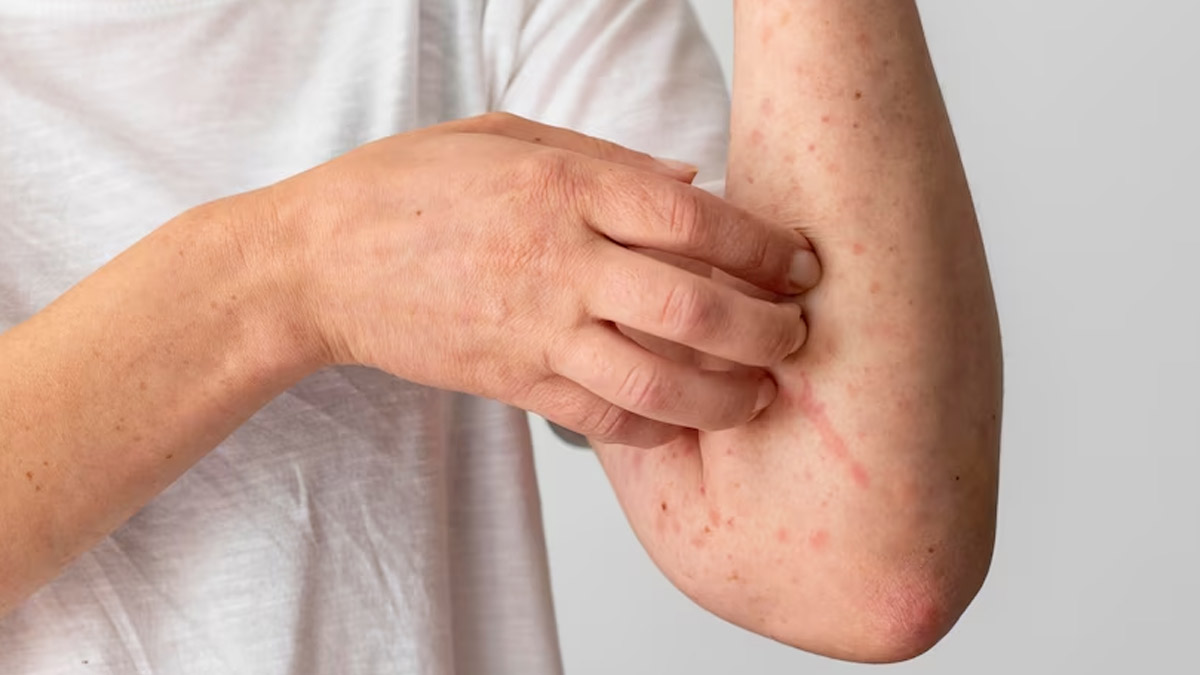
Ever had the urge to pick on scabs and scratch them out? Scabs are dry, rough, and crust-like formations that grow over a wound or an area of damaged skin as part of the body's natural healing process. They are like a protective cover on the surface of the wound, which contain dried blood, clotting factors, inflammatory cells, and tissue debris. While its a good thing and helps prevent further injury, some people may feel the urge to pick on it, increasing the risk of infection, and potentially resulting scarring.
Table of Content:-
Speaking with the OnlyMyHealth team, Dr Ramdas, Senior Dermatologist, Kamineni Hospitals, Hyderabad, explains why it's harmful to pick on scabs and how we can do that.
The Ill-Effects Of Picking On Scabs

“Picking at scabs can have several negative consequences for the healing process and the skin's overall health,” said Dr Ramdas, adding, “Firstly, it impairs the healing process by removing the protective cover, making the wound susceptible to external irritants, bacteria, and further injury. This can lead to infections, delayed healing, and increased scarring. Secondly, picking at scabs can result in more prominent and long-lasting scars due to the repetitive trauma inflicted on the wound and surrounding tissues, leading to tissue damage, inflammation, and the formation of hypertrophic or keloid scars.”
Adding further, the doctor shared, “Picking at scabs increases the risk of infection as it compromises the skin's protective barrier, allowing bacteria to enter the open wound, potentially causing localised infections that may require medical intervention and can result in further scarring or complications if left untreated.”
Understanding Dermatillomania

Skin picking can also be a disorder also known as dermatillomania. Also called excoriation disorder, it is when you cannot stop picking at your skin. Dr Ramdas shared, "It is a psychological condition characterised by the compulsive urge to pick at one's own skin, including scabs. It falls under the spectrum of obsessive-compulsive and related disorders."
According to Britain's National Health Services (NHS), people with dermatillomania may even pick moles, freckles, spots or scars to try to "smooth" or "perfect" them. They do not always realise they're picking their skin or do it when they're asleep. Symptoms usually include:
- Frequent and uncontrollable picking at scabs or healthy skin
- Persistent skin lesions, scars, or wounds due to picking
- Preoccupation with skin imperfections
- Difficulty resisting the urge to pick, even when it causes physical or emotional harm
- Feelings of tension or anxiety before picking and temporary relief afterward
Also Read: What Your Bowel Movement Reveals About Your Gut Health
How To Stop Picking Scabs

Dr Ramdas recommends several strategies to overcome the skin-picking behaviour.
“Firstly, cultivating awareness and mindfulness is crucial,” he said, adding, “Recognise the habit and practise mindfulness techniques like deep breathing and meditation to manage urges and redirect focus. Secondly, identifying triggers is essential.”
In addition, it is important to understand the situations, emotions, or stressors that prompt picking on skin. Strategies can be developed to avoid or cope with them effectively. People can also replace the habit with alternative activities like squeezing a stress ball, drawing, or engaging in a hobby that keeps hands occupied and can divert attention away from picking.
You can also create physical barriers, such as covering scabs with bandages or dressings. Lastly, the doctor recommends seeking support from dermatologists, therapists, or support groups specialising in dermatillomania. “They can provide guidance, behavioural therapy, and support throughout the recovery journey,” he concluded.
How we keep this article up to date:
We work with experts and keep a close eye on the latest in health and wellness. Whenever there is a new research or helpful information, we update our articles with accurate and useful advice.
Current Version
